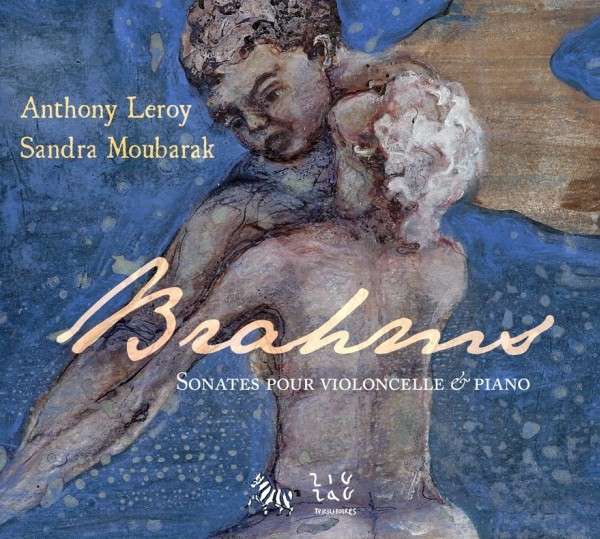
kompozytor
Brahms, Johannes
tytuł
Brahms: Sonates pour violoncelle & piano
wykonawcy
Leroy, Anthony;
Moubarak, Sandra
Moubarak, Sandra
nr katalogowy
ZZT 070202
opis
Quickly one is to call promising young artists as great talents, of which one will hopefully hear much more. But the cellist Anthony Leroy and the pianist Sandra Moubarak are more than that. The award-winning recordings of Rubinstein and Mendelssohn sonatas by the duo, founded in 1998, caused quite a stir. With the current recording of the two cello sonatas by Johannes Brahms, the two now turn out to be serious musicians and artists who reconcile their love of playing with seriousness, naturalness and the knowledge of the interpretive cliffs of these two core pieces of the cello sonata repertoire bring know. And they demonstrate with an unconditional will to expressiveness throughout a fascinating and so hard to achieve fusion of violoncello and piano in the 21-year-old Brahms Sonatas: Sonata in E minor op. 38 (1866), Sonata in F major Op. 99 (1887). • Brahms was very touched by the sonority of the cello, and in the three-movement Sonata in E Minor he exhausted his sonic space and variety of expressions (a fourth movement, a second Adagio, which Brahms withdrew, presumably because there was no real contrast to it) lyrical Allegro non troppo of the first movement). Anthony Leroy literally rises in a voluminous and glowing, where it is required but also in an almost fragile and elegant tone shaping. Already in the first movement, which raises as if out of nowhere, the cellist and his congenial piano partner Sandra Moubarak impress with a lecture between dreamy pause and stormy insistence - but without a romantically transfigured interpretation, for example, the view of the sweeping main and restless side theme as well as the detailed designed implementation events would cloud. Articulatory and extremely differentiated, the second and third fugue succeeds. The highly virtuosic F major sonatas give the young artists a tremendously energetic access in the outer movements and in the polyrhythmic Allegro passionato of the third movement. For a lesson in meditative contemplation, subtle and graceful sound, singing as well as in the time-taking and tasting of the melodic developments then the reproduction of the Werkzentrum, the slow second movement - and the playback of the likewise represented on the CD editing the Brahms songs appeals op. 7 and the Mainacht op. 43. • The profound understanding of the work of Anthony Leroy and Sandra Moubarak, the nature of their compellingly sophisticated music making, their technical sovereignty, the choice of tempi, their rich inventiveness or their common-sense breathing together in a dialogue that can hardly be overstated in terms of depth of expression - all this testifies to one artistic maturity that you do not meet every day. Admittedly, such eulogy quickly arouse contradiction and a certain mistrust. But sometimes you just can not help it, and in the case of Anthony Leroy and Sandra Moubarak, you just have to admit that you have completely succumbed to the electrifying tension of your Brahms interpretations when listening to this CD. • • Christof Jetzschke [08.05.2007]
nośnik
CD
gatunek
Muzyka klasyczna
producent
Zig Zag Territoires
data wydania
19-03-2007
EAN / kod kreskowy
3760009291324

(Produkt nie został jeszcze oceniony)
cena 79,00 zł
lubProdukt dostepny w niewielkiej ilości.
Wysyłka w ciągu 3 dni roboczych
Darmowa wysyłka dla zamówień powyżej 300 zł!
Darmowy kurier dla zamówień powyżej 500 zł!
sprawdź koszty wysyłki





























